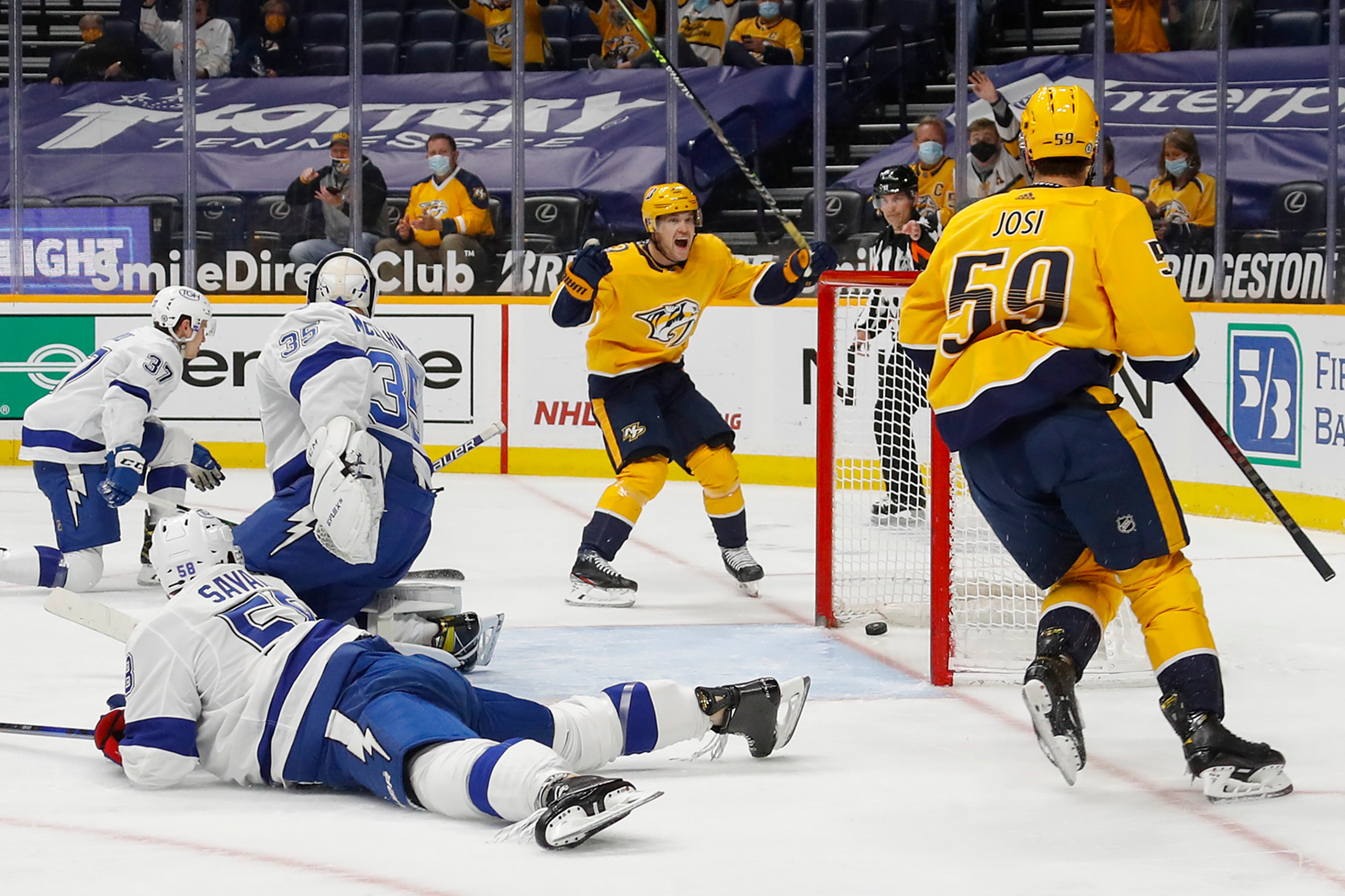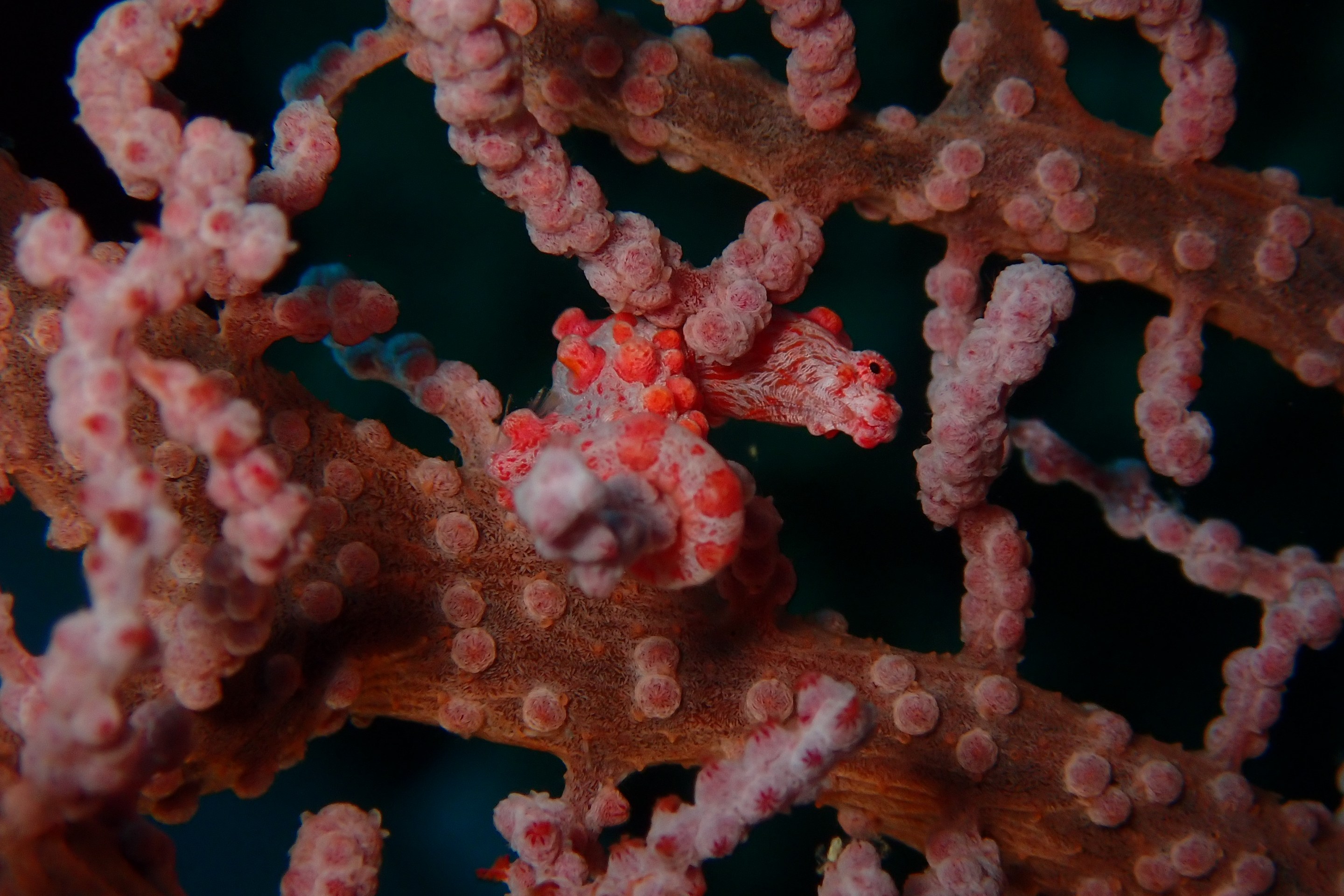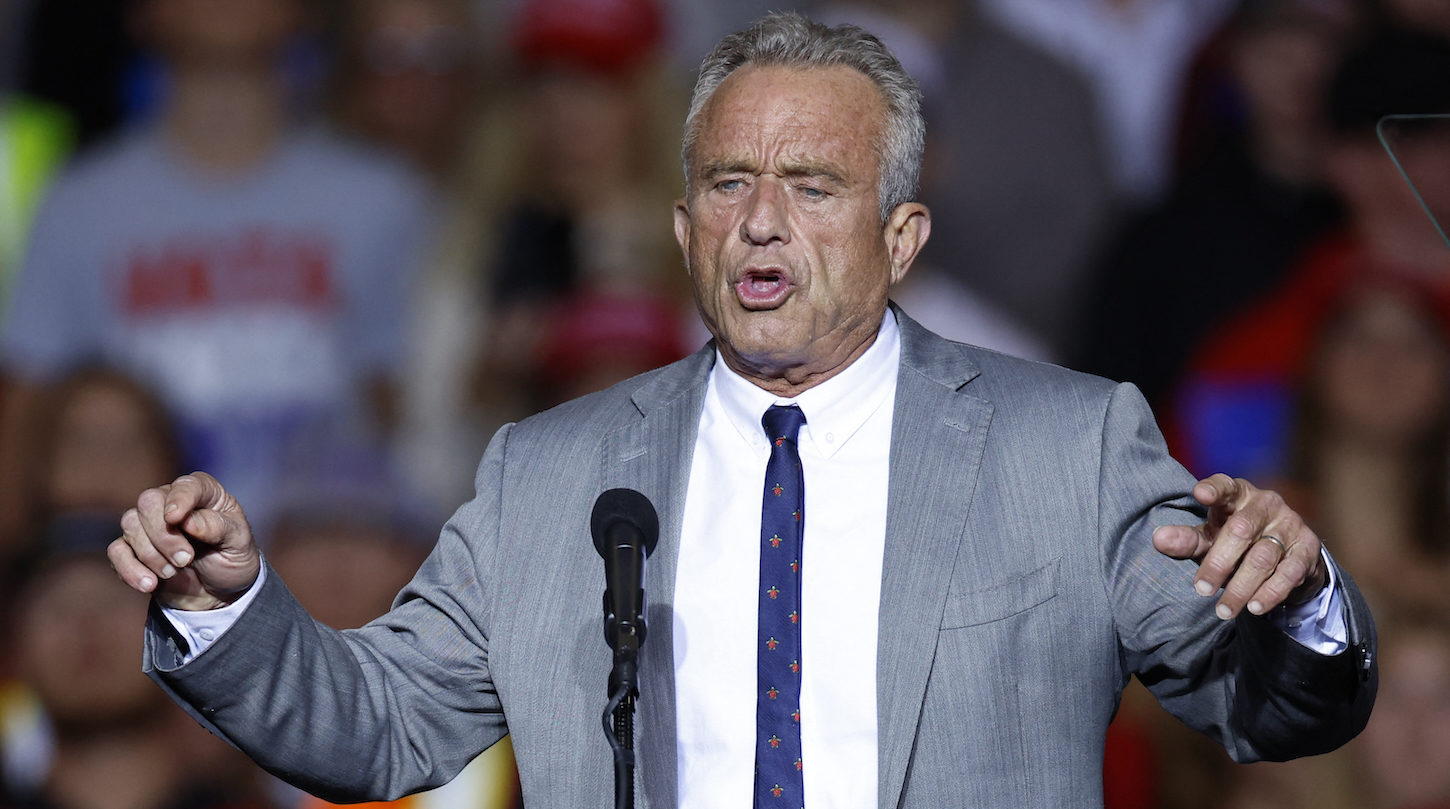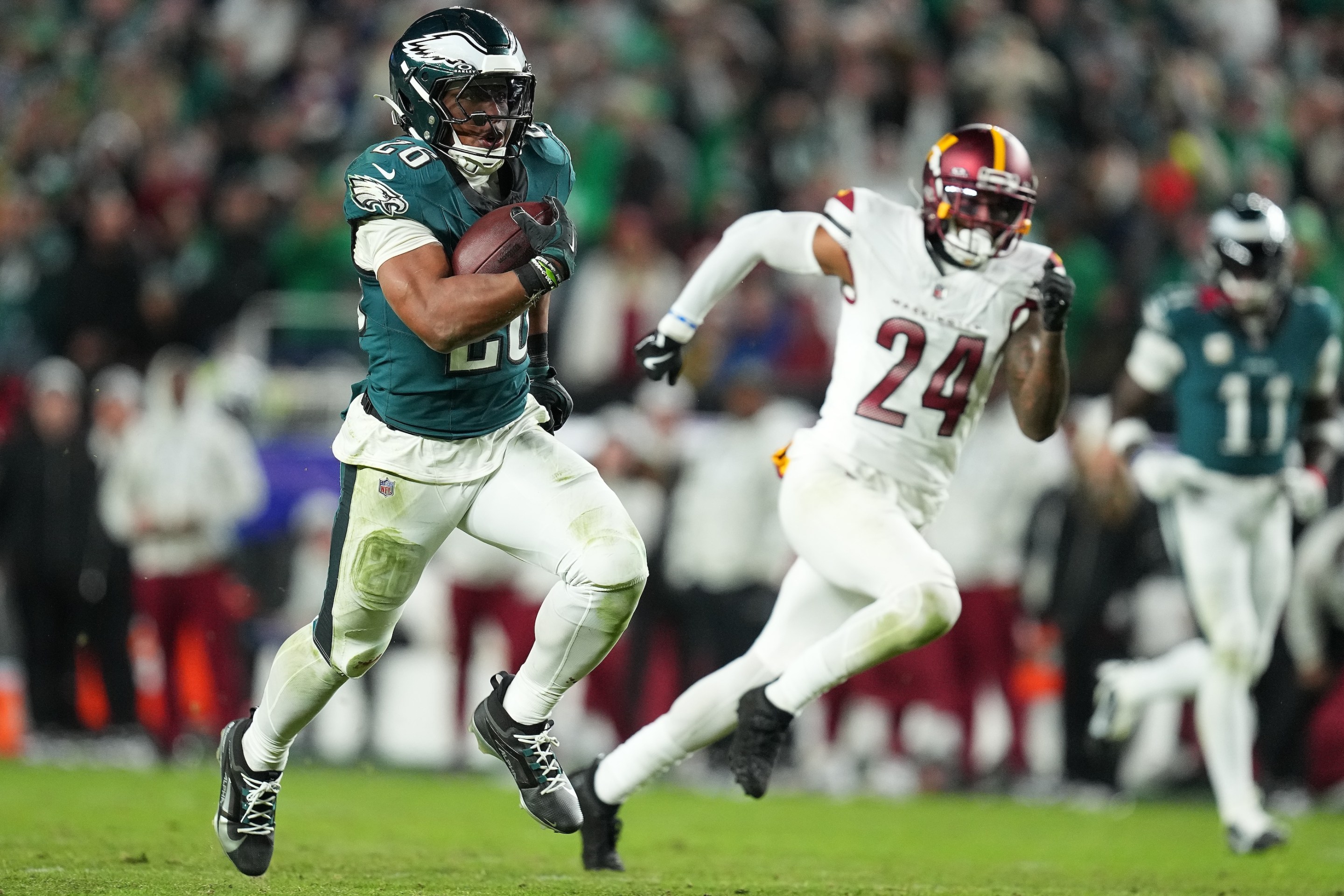The NHL's Central Division is currently playing out as a nail-biter of a three-team race for first, as the Hurricanes, Lightning, and Panthers (who all have the same number of points) scratch and claw to determine which of them will have the good fortune of avoiding one of the other two in the opening round of the playoffs.
But just below that fearsome trio sits the hottest team in hockey: the Nashville Predators, who on the heels of a 7-2 mauling of Tampa's backup goalie last night have now won 13 of their last 16 games. Unfortunately, though this blistering run has pulled the Preds from second-to-last in the division all the way to that final fourth-place playoff spot, it hasn't meaningfully gotten them any closer to catching the true giants of the southeastern United States. The hockey postseason, as of course the Preds know well, is built for all kinds of upsets, but conventional wisdom would argue that, even if the Preds do hold on to that fourth-place foothold over the Hawks or the Stars, they'll still get whacked by whichever team is built strong enough to claim the division title. So, does this hot streak feel like an important moment for the long-term success of the Predators, or is it ultimately chair-shuffling that'll be forgotten by June?
To get into the answer to that, you first have to sort through the recent history of the Nashville franchise, which has both been a real bright spot in the NHL and a disappointment over the last five years. In pre-COVID times their arena consistently looked like the most fun place on the continent to go watch a hockey game, and the team itself encouraged the party atmosphere with a Cup Final run in 2017 and some consistent winning in the next two years. But even though the Preds conquered the division in both 2018 and 2019, they managed to take just one playoff series. A sixth-place finish in the West and then a 3-1 Qualifying Round series loss to the Coyotes in the bubble last year seemed to mark the end of their championship window—a conviction only further solidified by an 11-16-1 start to the 2021 campaign.
But that pessimistic attitude holds a lot less sway now that the Preds have spent the last month beating up on their peers in the bottom half of the Central, and at least holding their own against the big boys. Viktor Arvidsson, the former 30-goal scorer who had a hat trick against Detroit on Thursday and two goals against the Bolts yesterday, has picked up some steam after a dreadful start to the year, and most importantly for Nashville they enjoy an enormous advantage in scoring chances whenever he's on the ice. On the forward lines in general, the results have been remarkably balanced, as a total of six guys have netted between nine and eleven goals for the Preds this year.
Those aren't exactly world-beating totals, but when that across-the-lineup finishing competence is combined with a top-five faceoff win percentage, the standout goaltending of Juuse Saros, who's 25 years old and having the best year of his career so far, and the remarkable way that best defender and captain Roman Josi is able to instantly transform a back-foot situation into a front-foot assault, it makes for an effective winning recipe. What particularly stood out if you watched the game on Tuesday is that, though the Preds didn't dominate the flow of the game in the way a 7-2 final would imply, it was the Nashville's deadly quick-strike counterattacking that just absolutely destroyed their opponents.
At the very least, Nashville is a team that wants to believe they might have a shot, as evinced by their actions at the trade deadline. Outside of a pointless trade for Erik Gudbranson, the Predators stayed still over the past week, refusing to move any of the guys who just recently seemed poised to leave in exchange for future assets, like Mikael Granlund and Mattias Ekholm. And though he conceded that it would be "really reaching for it" to say that his team was a Cup contender, Predators GM David Poile admitted that this sudden stretch of good play transformed his midseason strategy into something closer to "win now."
“We started winning,” Poile said. “And there was less need for people to call me and less need for me to want to call other people."
He added, “I can really see the outline of what the puzzle looks like, and it looks like a team to me right now. That’s what the puzzle looks like. It looks like the Nashville Predators are a really good, close-knit team.”
I'd like to err on the side of agreeing with Poile, with the caveat that I don't have much personal investment in whether or not his short-sightedness could hamstring the club over the next few years. My reasoning isn't very complicated—going for it is fun! You never know what might happen in a seven-game series! I'd take Saros as a playoff goalie long before anyone on the Canes!—but it also does require me to ignore at least some of the realities that are obvious to anyone who can read the standings. The Nashville Predators are currently playing probably the very best hockey they're capable of, and all it might net them is a playoff date with Carolina, who has beaten them four times out of four this season. While I acknowledge there's always a chance, the odds that Nashville's recent winning ways could signal any kind of real turnaround from the bummer of a trajectory they've been on for the past few years still feel pretty slim.





